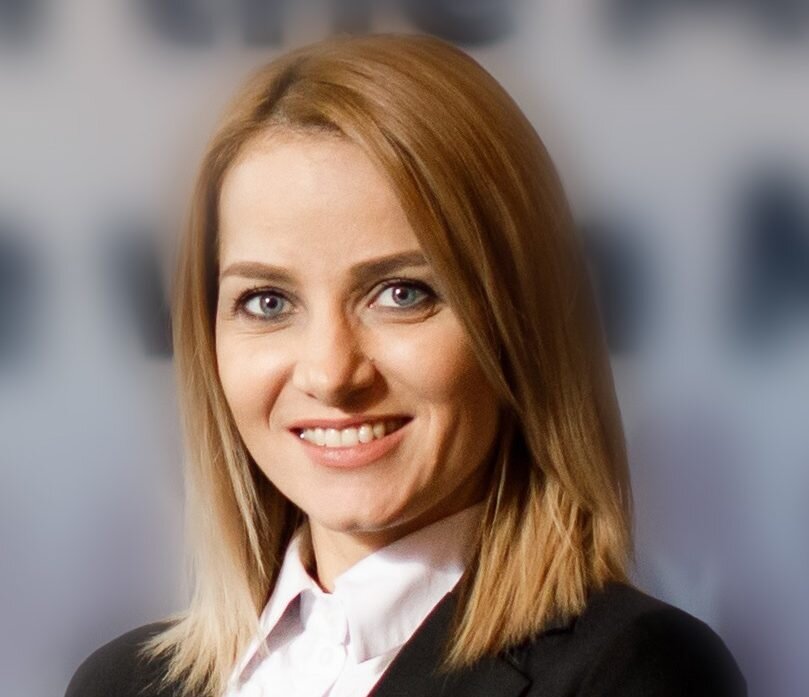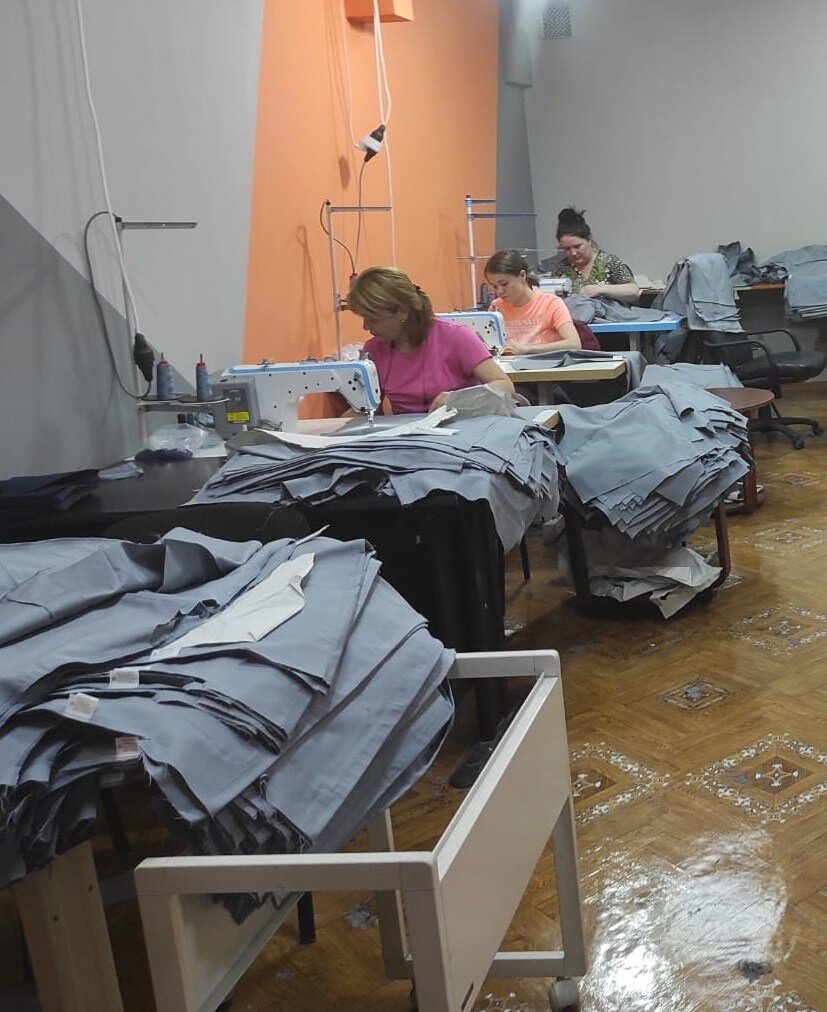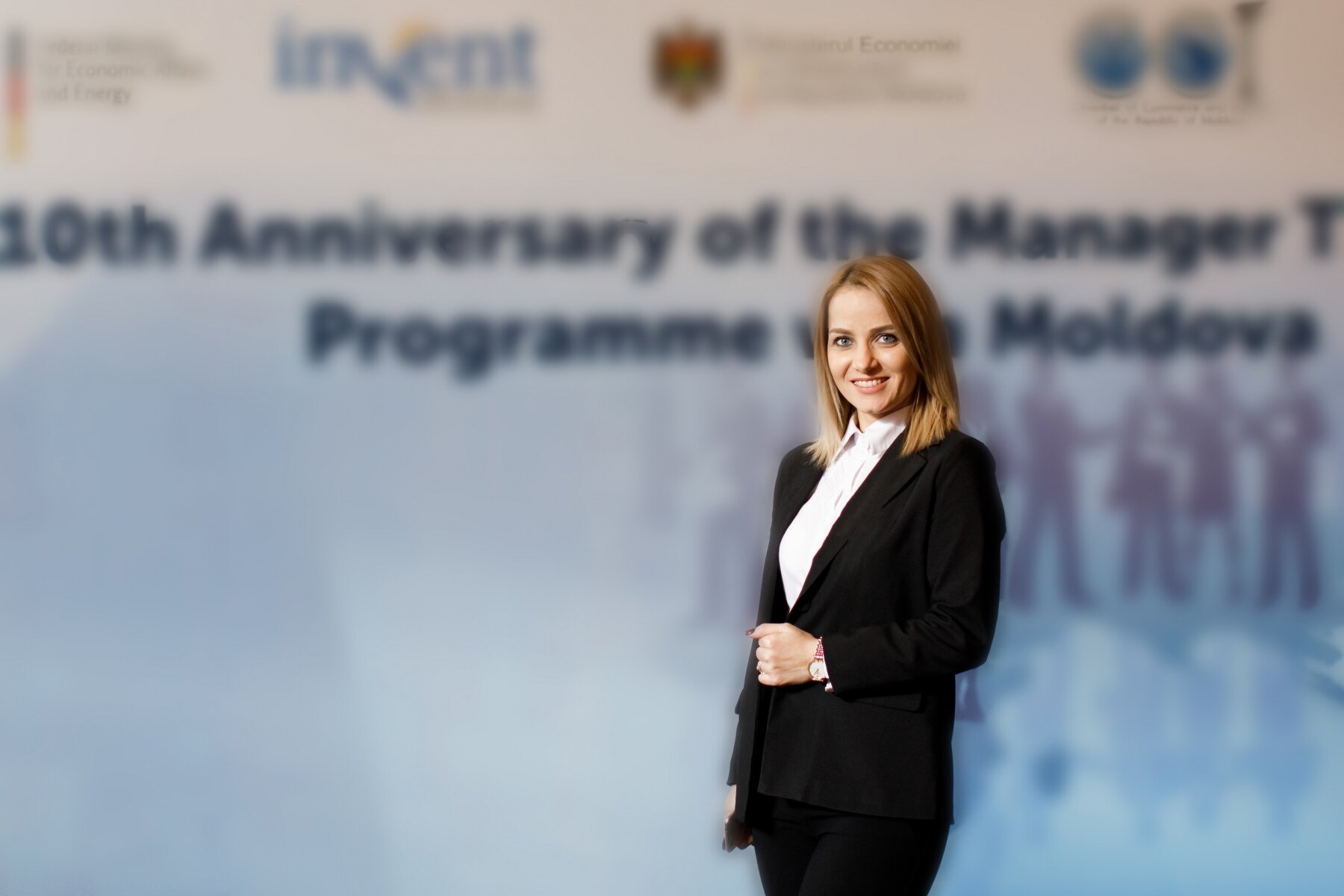“The Programme has changed my life”
Looking back on her participation in the Manager Training Programme (MP), Maria Plesca states, that it changed her entire life. Following the training in Germany, she was so inspired that she not only reorganised her parent’s business, Tingrimar, but also took over another firm.
The path which led her to that point was sometimes a stony one. Plesca was not immediately accepted onto the MP. It took three attempts before the entrepreneur was successful and until she could finally hold the letter of acceptance in her hand. In Germany she took on board everything she could that might help her develop Tingrimar. The enterprise has made a name for itself in Moldova as a manufacturer of workwear and protective clothing.


Education “Made in Germany”
Moldova has a shortage of skilled workers. Plesca was particularly impressed by the quality of apprenticeships and the vocational training system in Germany. After returning home, she contacted Moldova’s Chamber of Commerce and Industry and to her surprise discovered that the country already had a programme in place to implement the German training model. Furthermore, she had timed it perfectly to take part in a pilot project for Moldovan manufacturers which provide on-the-job training, and which was being supported by the GIZ in Moldova. After just six months, she had completed her “Master Craftsmen” certificate based on the German Meisterbrief framework, along with her mother with whom she had “gone back to school”.
In the meantime, the two entrepreneurs have trained 75 seamstresses. Tingrimar is one of 50 firms in Moldova which offer on-the-job training based on the German system and is therefore actively contributing to the modernisation of vocational training in the country.
Change Management
After returning to Moldova, Plesca refurbished their production hall to improve the working conditions for her staff. Furthermore, she also established a centrally located and modern showroom in the capital city, Chisinau, in which sewing also takes place. Across the 100m2 showroom, the customers can look at the products and materials and watch the production process live. Plesca states that transparency is very important to her, especially in the textile industry which has been plagued by scandals. She also decided to close two retail stores that were not proving profitable, introduced an inventory system, and optimised internal production processes. These changes were not implemented without some resistance: Some members of staff were not ready for these innovations and left the firm. In the meantime, Plesca is now working with a new and motivated team.

If You Can Make it There…
Currently the bulk of Tingrimar’s turnover is generated from the domestic market. But that is set to change. To boost their international trade, Plesca has organised for a promo-video and a photo shooting to be done for their new Facebook page. The website was relaunched and the corporate design underwent a makeover. Gaining their first international customers in Romania and Italy, Moldova’s two most important trade partners, is evidence of the success of this marketing strategy. The new customers have ordered workwear for the catering and medical sectors and protective clothing for the construction industry. Plesca also wishes to enter the German market within the next two years. “If we can make it there, we can make it anywhere,” she says, as the quality requirements and certifications for the German market are seen as the strictest in the EU.
Producing Masks
In order to protect the local population from Corona, this year Tingrimar has been making masks. Plesca regrets that she has not been able to produce masks for other countries, but the requirements for exporting hygiene products are particularly high. Their campaign has produced around one million masks for the domestic market. This resulted in little profit. “We didn’t do it for the profit; we wanted to do our part in combatting this virus,” says the entrepreneur.
A Second Line of Business
The Manager Training Programme catapulted Plesca forwards. Her work is now even more structured and better organised. And it emboldened her to make another enterprising move: In May 2019 she took over the financial consulting firm Pro-Biznet Ltd. The 35-year-old numbers-expert is now putting all her passion and energy into leading these two enterprises. And yet she still manages to switch off and enjoy her hobbies; preferably whilst horse riding, reading or cooking.
Current Situation
On average, textile enterprises in Moldova have suffered a 45% drop in business due to the coronavirus pandemic. Comparatively, Tingrimar has got off lightly experiencing a fall in income of 25%. Production was halted for four months, and the business was forced to let some staff go due to hygiene restrictions and social distancing guidelines. Finance expert Marta Plesca is however confident that 2021 will be better and is predicting growth of 15%. Meanwhile Moldova’s GDP has – like in many other countries – plummeted: According to the IMF for 2020 it suffered a 4.5% drop.



